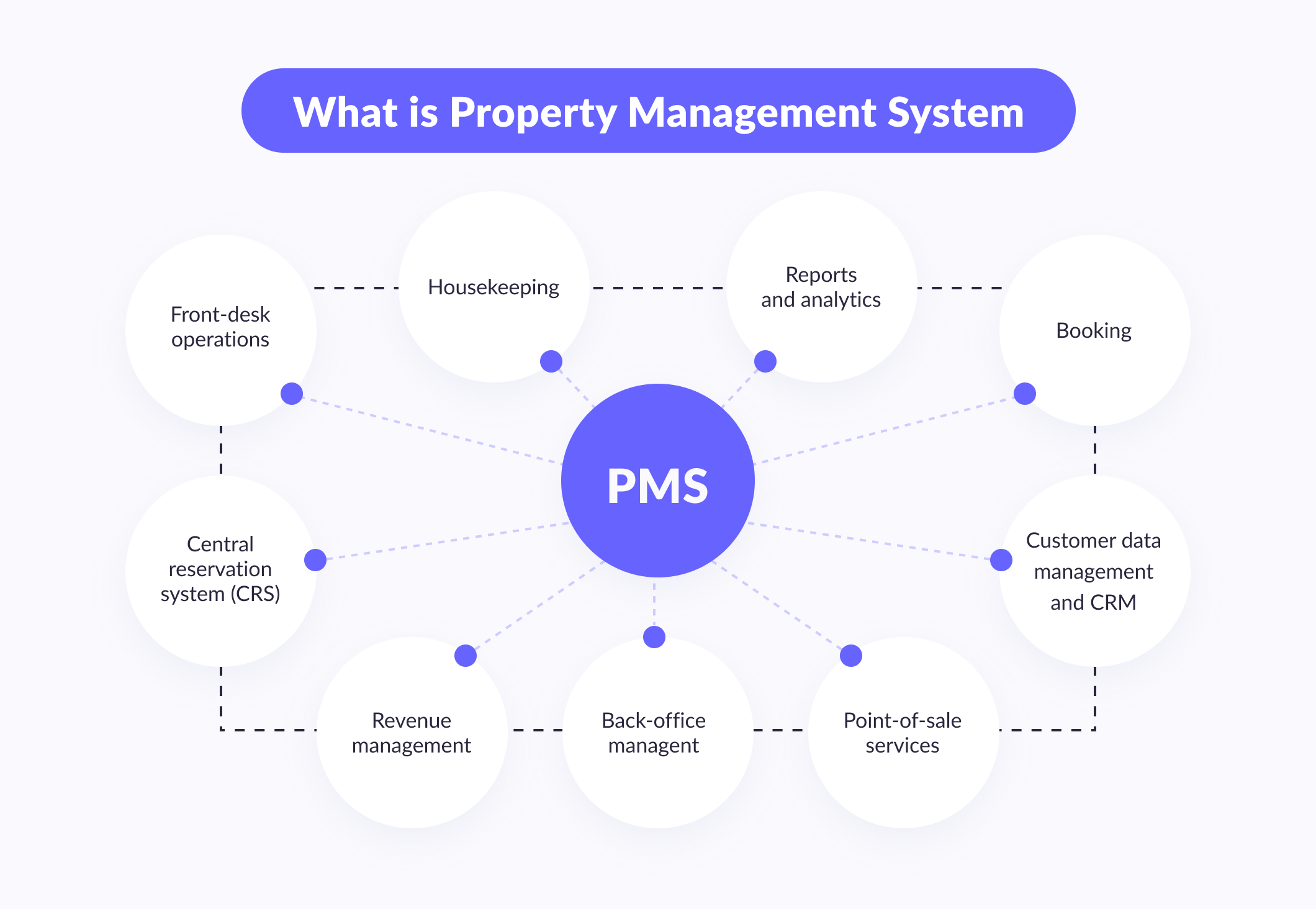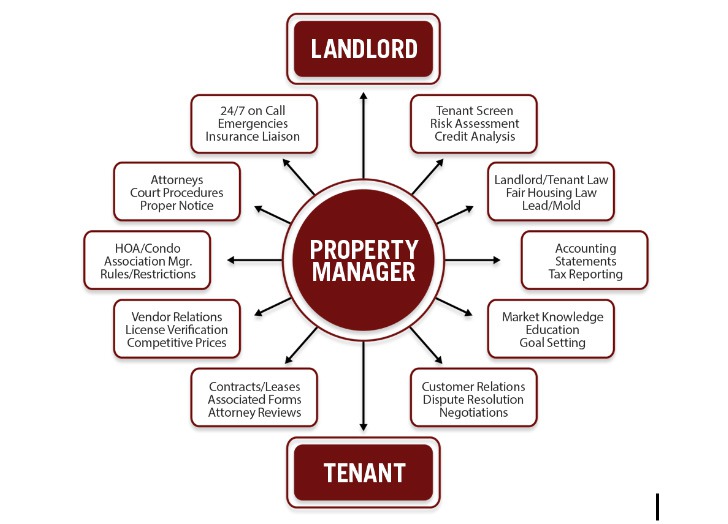What Does Property Management Services Do?
Table of ContentsProperty Management Services for Dummies


An RLA, additionally referred to as a lease contract or rental contract, is a lawfully binding contract in between a landlord and a renter when leasing a property. It details the responsibilities and rights of both celebrations, consisting of lease amounts, settlement timetables, duration of occupancy, maintenance commitments, security deposit terms, and guidelines regulating the residential or commercial property. Lease contracts shield both property owners and renters by providing quality and lawful option should disagreements occur. In lots of jurisdictions, RLAs are called for by law, and failing to abide by regional regulations can lead to fines or other lawful consequences. A thorough RLA not only guarantees smooth landlord-tenant relations however additionally stops misconceptions, late settlements, and disputes over residential or commercial property maintenance or rules.Real estate representatives are experts who facilitate the acquiring, marketing, and leasing of buildings. Their work atmosphere can be exceptionally flexible, permitting them to operate from basically anywhere. Many representatives work remotely from their homes, leveraging innovation to communicate with clients, routine showings, and handle transactions. Others may run on-site at their broker agent companies, which act as head offices for conferences, documentation, and customer appointments. Some agents also separate their time between seeing properties, going to customer meetings, and executing management jobs, which gives a vibrant and frequently highly autonomous job routine. The versatility of this profession makes it appealing to people looking for self-reliance and the ability to handle their own time.While it is definitely feasible to buy or offer a residential or commercial property individually, doing so calls for substantial effort, time, and expertise. Realty purchases include legal, monetary, and step-by-step complexities that might not be obvious to someone not familiar with the market. For example, contracts have to be examined very carefully to prevent unintentional obligations, arrangement skills must be applied properly to accomplish a desirable cost, and local regulations and regulations need to be complied with in order to prevent fines or legal conflicts. Lots of people employ licensed property representatives since they possess the network, understanding, and experience essential to navigate these obstacles. Agents help improve the process, minimize threats, and usually attain far better outcomes for clients by leveraging their market expertise.Commercial real estate representatives do comparable features to residential representatives but focus specifically on industrial residential or commercial properties. These include apartment building, workplace structures, stockrooms, retail spaces, and commercial facilities. Commercial purchases often entail bigger sums of cash and even more intricate contractual arrangements than property deals. Because of this, business representatives usually collaborate with real estate investors, organization proprietors, and business customers that are looking for to buy, lease, or market business properties (Property Management Services). The risks in business realty are higher due to the fact that the homes are more costly, the contracts much more detailed, and the prospective financial gains or losses much more significant. This environment needs a high level of professionalism and trust, analytical ability, and arrangement skill to succeed.While it is possible to come to be a real estate representative for the function of handling your very own building purchases, this technique might not be one of the most effective unless you plan to pursue a complete career in realty. Becoming a qualified representative needs a financial investment of time, often involving pre-licensing coursework, examination prep work, and proceeding education requirements - Property Management Services. In addition, brand-new agents must pay fees connected with licensing, subscription in specialist companies, and possibly the costs of signing up with a broker agent. For someone just interested in buying or selling a single residential or commercial property, the in advance costs and learning contour might surpass any type of economic savings obtained from functioning as their own agent. Expert representatives gain access to networks and sources, such as the Multiple Listing Service (MLS) and industry calls, which are hard to take advantage of as an independent buyer or seller.The Role of a Genuine Estate AgentA certified actual estate agent is an expert trained to assist clients via the procedure of buying, marketing, or renting homes. They supply market understandings, bargain in behalf of clients, and ensure economic and lawful conformity throughout the purchase. Agents have access to substantial databases and tools that permit them to identify appropriate residential or commercial properties for purchasers, or to market homes efficiently for sellers. Their experience in agreement legislation, financing options, and local market fads is vital in achieving optimal results for their clients.Real estate agents act as middlemans in between buyers and vendors. They assist buyers find homes that match their budgets and needs, routine residential property watchings, and offer objective analyses of market price. For vendors, agents market the residential or commercial property, highlight trick attributes, organize open homes, and bargain offers to take full advantage of earnings. In both situations, agents alleviate risks by guaranteeing that agreements and legal documents are properly prepared, preventing prospective disagreements or expensive mistakes.Residential vs. Business Actual EstateResidential agents concentrate on properties meant for individual use, such as single-family homes, condominiums, and condominiums. These representatives prioritize customer satisfaction, residential or commercial property condition, neighborhood safety and security, and resale value. Residential agents usually handle relationships with specific property owners and purchasers, supplying personalized service and emotional assistance during what is usually a significant life event.Commercial agents, on the various other hand, operate in a various realm. Industrial properties are investment assets, and deals typically include comprehensive financial evaluation, market estimates, zoning legislations, and lease negotiations. Industrial agents work closely with capitalists, entrepreneur, and firms, commonly discussing multi-million-dollar deals. They should recognize not just property concepts yet additionally business finance, market dynamics, and risk management.Training and Licensing RequirementsTo come to be a realty representative, candidates have to meet details academic and licensing needs, which vary by state or nation. Normally, possible agents complete pre-licensing training courses covering realty regulation, values, home evaluation, funding, contracts, and advertising. After completing coursework, candidates need to pass a state licensing test, showing their understanding and preparedness to practice properly. As soon as licensed, agents might be required to sign up with a brokerage firm and keep their basics license with proceeding education and learning programs. These programs maintain representatives informed regarding adjustments in laws, market patterns, and best techniques, ensuring they offer clients with existing and exact advice.Skills Needed to SucceedSuccess in realty calls for a mix of technological expertise, interpersonal abilities, and company acumen. Strong communication and settlement skills are crucial, as representatives should engage with clients, various other agents, attorneys, and lenders. Analytical skills help agents review residential or commercial property worths, market trends, and financial implications of deals. Organizational skills are important for taking care of multiple clients, home listings, showings, and documentation simultaneously.Additionally, durability and versatility are required qualities, as property markets change and deals might not always go as intended. Agents should be prepared to deal with denial, work out effectively, and think strategically to accomplish their customers' objectives.Marketing and Innovation in Real EstateModern property agents rely greatly on technology and marketing methods to get in touch with clients and close deals. On the internet residential property listings, online trips, social media sites advertising, and e-mail projects enable representatives to reach a more comprehensive target market efficiently. Agents make use of data analytics to recognize target audience, rate buildings accurately, and forecast market fads. Customer connection monitoring (CRM) software application aids agents track client communications, take care of leads, and maintain professional interaction. The combination of technology has changed the actual estate landscape, making agents much more effective and boosting the customer experience.Financial and Ethical ResponsibilitiesAgents have fiduciary duties to their clients, implying they should act in the finest rate of interest of the client with loyalty, transparency, and honesty. This consists of divulging any kind of disputes of passion, giving accurate click resources market info, and negotiating terms that benefit the customer. Representatives must likewise take care of customer funds properly, whether it includes down payment down payments, rent out collection, or escrow accounts. Honest habits is fundamental to building trust, keeping a professional online reputation, and making sure long-lasting success in the industry.Career Opportunities and SpecializationsReal estate offers a wide variety of occupation opportunities and prospective field of expertises. Some agents focus on luxury homes, while others concentrate on commercial realty, building administration, or investment homes. There are additionally particular niche locations such as trip rentals, foreclosures, or lasting real estate. Field of expertise permits representatives to establish competence in a certain section, draw in particular client kinds, and distinguish themselves in an affordable market.Challenges in Actual EstateWhile fulfilling, realty careers can be difficult. Agents typically deal with inconsistent earnings, requiring customers, open markets, and rising and fall economic conditions. Successful agents must be self-motivated, proactive, and able to take care of anxiety successfully. Continual discovering, networking, and adaptability are important to getting over these challenges and receiving lasting success.ConclusionBecoming a property agent includes more than simply assisting someone buy or offer a home. It requires education and learning, licensing, market understanding, negotiation skills, and moral method. Agents play an important role in assisting customers via intricate transactions, whether industrial or property. While it is possible to handle your very own residential property transactions without a representative, the competence, resources, and risk mitigation that specialist representatives offer make them vital in accomplishing successful outcomes.Real estate is a vibrant, difficult, and gratifying occupation that uses adaptability, independence, and the capacity for significant monetary Related Site rewards. Whether assisting clients with domestic homes, commercial homes, or financial investment profiles, agents offer as relied on experts, mediators, and market professionals. Their obligations include legal conformity, marketing, client relationships, monetary management, and calculated decision-making. For those happy to spend effort, time, and commitment, a career in genuine estate offers chances for personal growth, expert accomplishment, and long-term success.
